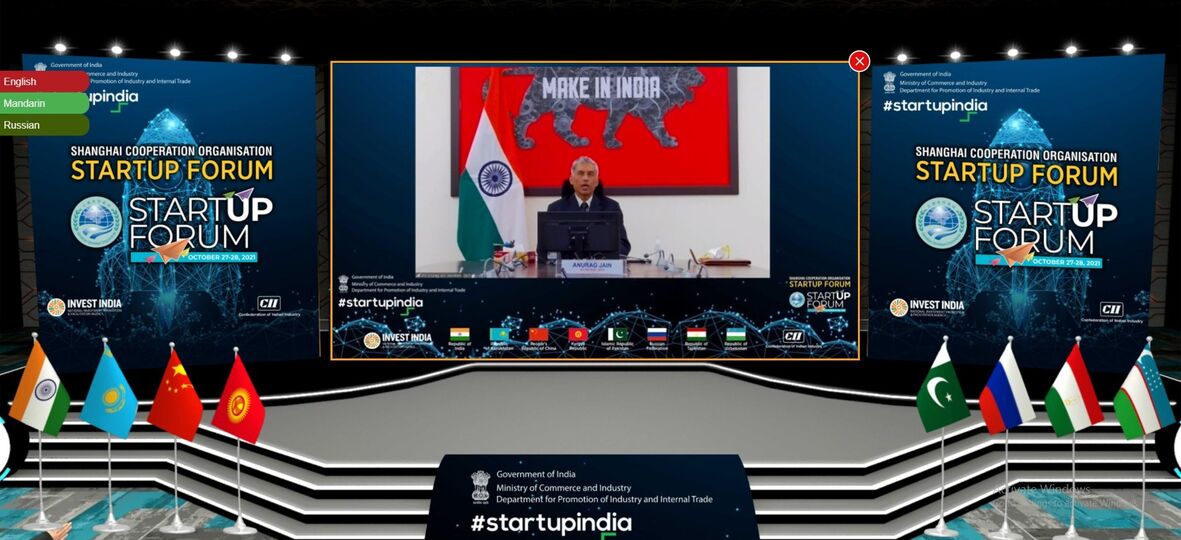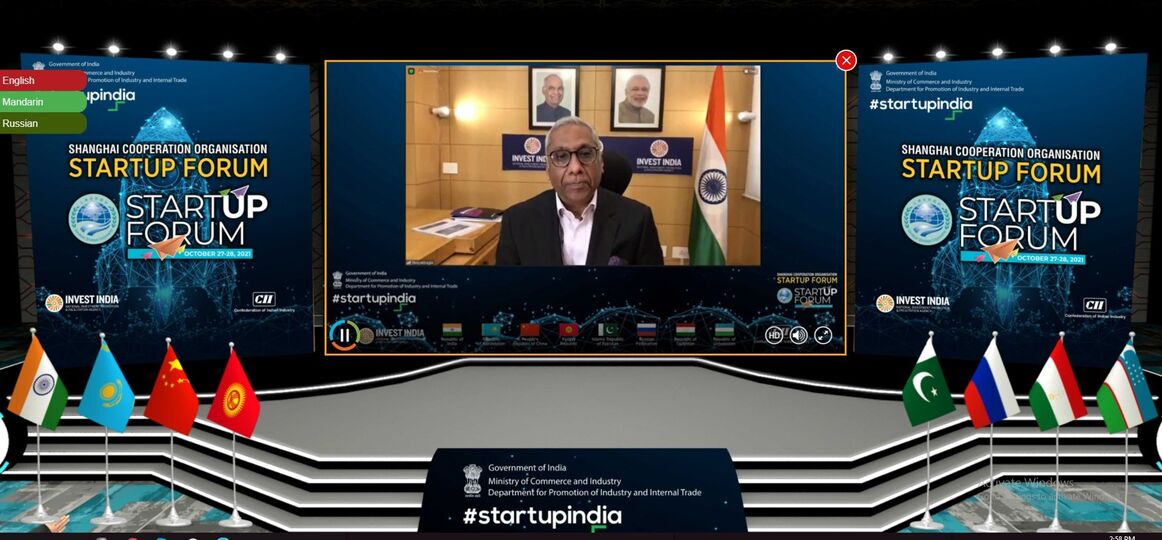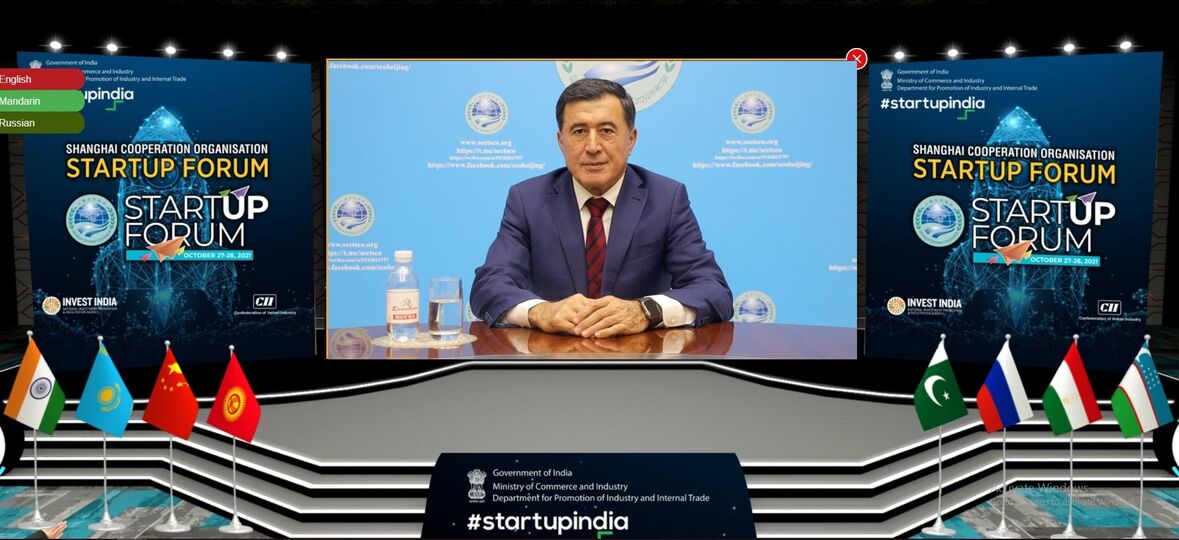On 27-28 October 2021, the Department for Promotion of Industry and Internal Trade of the Government of India, jointly with the SCO Secretariat, hosted the Second SCO Startup Forum, held via videoconference.
The participants discussed how to exchange best practices in the area of innovations and startups, as well as a multilateral incubator programme, investment, and further development of social innovations.
There were thematic workshops and presentations designed to facilitate contacts between startups, on the one hand, and businesses, target consumers and government agencies, on the other.

SCO Secretary-General Vladimir Norov made a video address at the Forum, saying that the internet platforms were growing in importance against the background of the COVID-19 pandemic. These platforms not only accelerate progress towards full digitalisation of trade and services but also create numerous jobs with new business formats, emerging as a new incentive for global economic growth and employment stabilisation.
Referring to facts and figures, he stressed that the digital economy, according to some estimates, accounted for 20% of global trade, with that proportion likely to grow to 25% by 2025, if the COVID-19 pandemic was set to persist.
In this context, small businesses came to play a conspicuous role in aiding country populations and reviving economies. He also reminded his audience that the Declaration on the 20th Anniversary of the Shanghai Cooperation Organisation stressed the importance of supporting small and medium-sized businesses as a means to incentivise economic growth and employment.
Mr Norov mentioned the SCO's active work to support youth startup projects as a method of inducing young people to engage in entrepreneurial activities.
He also focused on the SCO International Youth Business Incubator project implemented by the SCO Youth Council.
According to him, the project is due to facilitate the training of instructors for emerging startups, open business incubator space to young people, and sponsor probation training in participating countries.
In his opinion, an extreme need is felt to tap the youth potential by creating a pool of young entrepreneurs and promoting youth business incubators and startup projects in the digital economy area.

According to Mr Norov, the draft Concept of SCO Technology Parks and Innovation Clusters, which is expected to be approved by the SCO Council of Heads of Government at its meeting in Kazakhstan, will serve to support youth business enterprise, including at the existing venues, identify potential investors, and help startup soft lending collaboration in SCO member countries in keeping with their laws and regulations.
In conclusion, the SCO Secretary-General praised India's efforts to organise the Second SCO Startup Forum and stressed that this event would lay a sound foundation for further multilateral cooperation in promoting a startup ecosystem within the SCO.
The forum included one plenary meeting and six simultaneous activity zones, where 11 different events in three languages — English, Russian, and Chinese — were held within 3.5 hours. Over 2,600 observers from 60 countries and six continents were also attending the forum.
